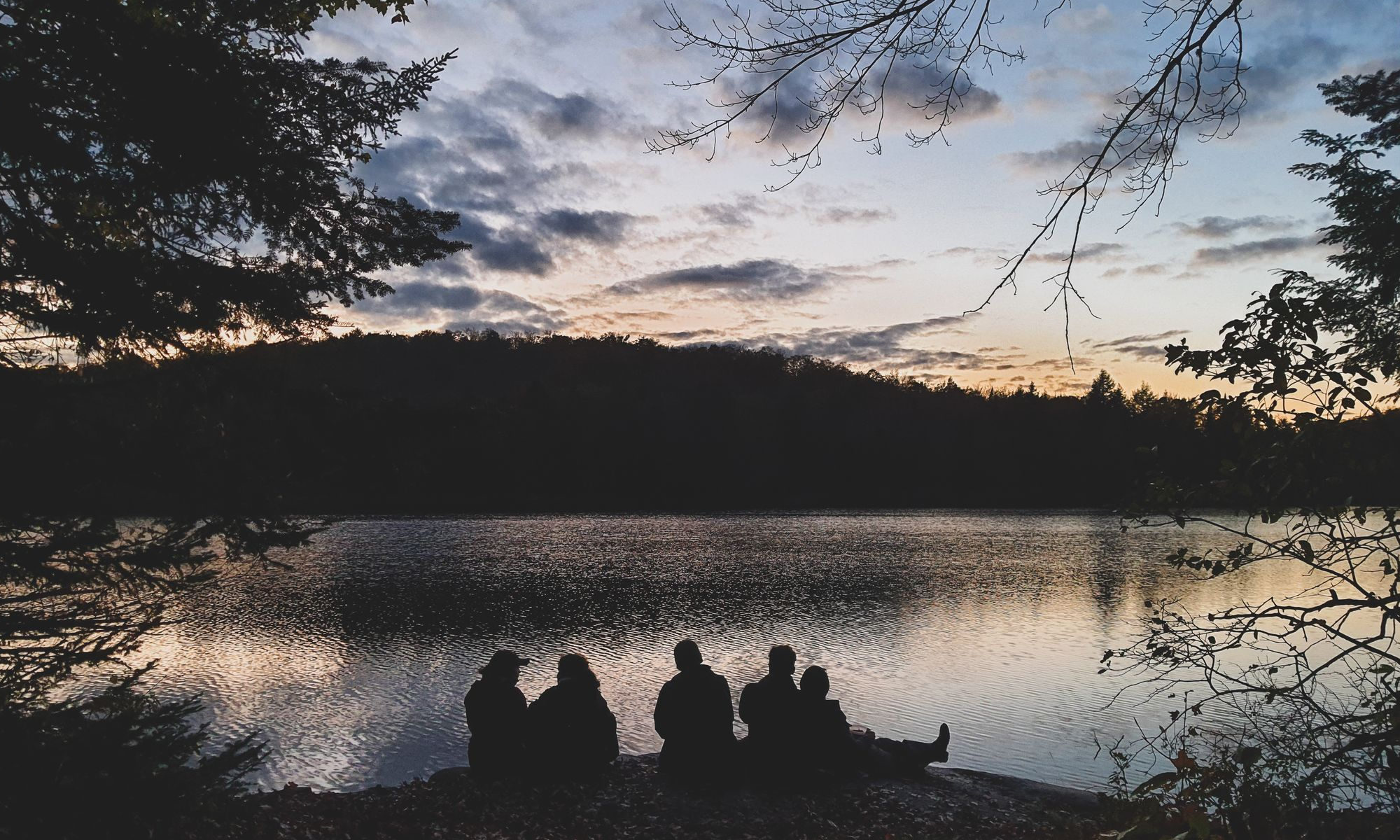“Welcome to the FAQ! Here you’ll find information about our programs. If your question remains unanswered, please contact us at: programmescoyote.office@gmail.com“
1. What if it's rainy?
Being out with the elements in all their moods is one of our core values because we believe it is an opportunity always available to us for building confidence and resiliency! Rain, snow, uncomfortable temperatures, and insects are all valuable teachers as long as we are well-prepared.
For programs at Angrignon park, we will gather under public shelters if the rain is too heavy. For other programs, we will use tarps and what Nature has to offer for shelter.
However, if the weather makes travelling dangerous, or if extreme storms / lightning / winds are expected, we will indeed cancel programs. In the event of a cancellation due to extreme weather, we will be sending an email in the morning of the program. We wait until the day of because it is truly exceptional that we cancel programs due to weather, and so want to be sure in our decision. For weekend programs, we do not offer refunds for days cancelled due to weather. For weekday programs (rl-24 eligible), we will issue a refund for the canceled day.
2. What about ticks?
Ticks, just like all the common hazards that we speak about early on in our programs (dangerous plants, falling branches, dehydration etc..) are teachers of awareness. We empower children to look out for these things and get to know them so they don’t live in fear, but nurture an understanding of these things. Ticks are a hazard to approach with a lot of respect because the consequences are significant. The most important thing to do after a day in a wild area that is known to have ticks is to check for ticks at the end of the day and to properly remove them if they are embedded in the skin.
Here are some useful links to know more about ticks and lyme disease:
- https://www.canada.ca/en/public-health/services/diseases/lyme-disease.html
- https://www.inesss.qc.ca/fileadmin/doc/INESSS/Rapports/Biologie_medicale/Lyme_PPE/Lyme_Feuille-de-suivi.pdf (French only)
We send a detailed description of how to check for ticks and other information in our Welcome Document.
3. How can I contact you during programs?
There is always a person in charge that you can contact during programs. Whether it’s the director or the head instructor, you’ll find their phone number in the Welcome Document we send before the first session of the program.
4. What's your cancellation policy?
Please write to us by email at programmescoyote.office@gmail.com in order to cancel your registration.
-
-
For Weekend Programs:
- A 5% non-refundable deposit of the total program fee is required upon registration.
- Cancellation made 8 days or more prior to the program start date will be refunded in full, minus the non-refundable deposit.
- Cancellations made 7 days or less prior to the program start date will result in the retention of 25% of the total program fee.
- For cancellations made after the program has started, refunds will only be provided if the vacated spot is filled by another participant and will apply only to the remaining days of the program after the spot has been filled.
-
For Weekday Programs:
- A $50 non-refundable deposit is required upon registration.
- Refunds will be issued for the days of the program that have not yet occurred following the date of cancellation.
-
For youth programs: if your child is unsure whether they would like to participate, please contact us and we would be happy to arrange a trial day before committing to the program.
If a participant must withdraw from an entire program for medical reasons a full refund will be issued, upon receipt of medical evidence (such as a note from a health practitioner).
In the event of low registration, last-minute debilitating illness of instructors, or other circumstances out of our control, programs may be cancelled. Participants will receive a full refund for the day(s) missed, or be offered a make-up program date.
5. I don't have a car, can you help me find a ride?
We include a carpooling link in our Welcome Document for programs you cannot get to with public transportation. Get in touch with us if you cannot find a ride at least 3 days before the program. We cannot guarantee that we will find you a ride but we’ll do what we can to help you out. We will NOT offer refunds if you can’t attend the program because you could not find a ride.
6. How do I know that my young child is ready to attend your programs?
7. Can you file RL-24 slips for your programs?
We file RL-24 slips for our summer camps and our programs during the week. These include the Chickadees, the Minks and the Wood Frogs. This means the family receives 67% to 78% of the cost of the program back. Please contact us if you would like a form filed out to receive a monthly reimbursement for the program.
It is also possible to claim a refundable tax credit for the physical activities or artistic, cultural or recreational activities of an eligible child.
8. How to dress properly for the rain and the cold?
9. How can we stay warm in the cold (besides our gear)?
10. What are your knife safety rules and where can I get a decent knife for my child?
Consider this knife.
Knife safety rules for youth at our programs:
11. What are some resources you recommend on survival skills and nature mentoring?
- Mathieu Hébert et Geneviève Lavoie: Traces d’animaux du Québec
- Jon Young: Coyote’s Guide to Connecting With Nature, Animal Tracking Basics
- Mors Kowanski: Bushcraft, Boreal Survival
- Tom Brown Jr.: Field Guide to Nature and Survival for Children, The Tracker
- Tamarack Song: Entering the Mind of the Tracker


